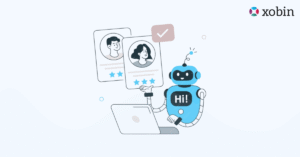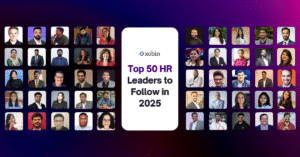In today’s rapidly evolving digital landscape, tech hiring trends are more important than ever. For tech leaders navigating the competitive tech job market, staying ahead means understanding not only where the industry is but also where it’s headed. As we look forward to 2026, the technology sector continues to transform hiring strategies, requiring innovation, agility, and a forward-thinking approach.
Table of Contents
In this comprehensive guide, we’ll walk you through the tech hiring trends that will shape the future of recruitment. These insights will help you rethink your technology hiring trends and implement cutting-edge strategies to ensure your organization remains competitive and innovative.
TL;DR – Key Takeaways!
- AI recruitment tools will dominate, automating candidate screening and improving hire quality.
- Remote & hybrid hiring opens global talent pools and demands virtual evaluation strategies.
- Skills-first hiring is in; degrees alone no longer cut it in technical recruitment.
- DEI efforts move from optional to essential; diversity fuels innovation.
- Strong employer branding actively attracts top tech talent.
- Hiring analytics enable smarter workforce planning and reduce guesswork.
- Talent pooling ensures faster, more efficient hiring pipelines.
- Upskilling & internal mobility combat talent shortages and boost retention.
- Specialized roles in AI, blockchain, and cybersecurity surge in demand.
- A great candidate experience builds brand image and increases acceptance.
- Bias mitigation with structured, fair, and inclusive hiring practices is non-negotiable.
- Cross-functional collaboration aligns hiring with business outcomes and tech needs.
Top Trends Shaping the Tech Recruitment Landscape in 2026
1. AI-Powered Recruitment: The New Standard
The rise of AI is revolutionizing recruitment. In 2026, AI-driven tools will dominate tech recruitment trends by automating resume screening, candidate matching, and even interview scheduling. These tools reduce bias, speed up the hiring process, and improve candidate experience.
Leading companies are leveraging smart AI tech recruitment software to automate sourcing and screening. As machine learning gets more sophisticated, AI tools now assess resumes, match skills to roles, and even predict cultural fit. This means shorter time‑to‑hire and higher quality pipelines. According to recent surveys, over 70% of organizations now use AI tools to filter at least 50% of applicants.
2. Remote and Hybrid Work: Expanding the Talent Pool
The tech industry hiring trends clearly show a shift toward remote and hybrid work models. Post-pandemic, companies recognize the benefits of flexibility, not only in employee satisfaction but also in widening the talent pool.
Embracing remote hiring helps organizations access global talent without being limited by location. However, this shift means you must adapt your recruitment strategy to assess candidates virtually while still ensuring strong engagement and a good culture fit.
3. Skills Over Degrees: Competency-Based Hiring
Traditional qualifications are no longer the sole benchmark for hiring in the tech world. In 2026, technical hiring trends emphasize skills, certifications, and demonstrated competencies over formal education.
Companies increasingly use skills assessments and coding challenges to evaluate real-world abilities. This approach aligns with the latest hiring practices that prioritize practical knowledge, making recruitment more inclusive and efficient.
4. Diversity, Equity, and Inclusion (DEI) is a Priority
In 2026, DEI initiatives offer more than just a moral responsibility; they create a clear strategic edge in the tech job market. Diverse teams spark innovation, boost creativity, and deliver stronger business results.
Tech leaders must implement recruitment strategies that reduce unconscious bias and promote inclusivity. Leveraging AI tools that are designed to be bias-free can support this goal while enhancing the employer brand.
5. Employer Branding: Winning the War for Talent
As the competition for skilled tech talent intensifies, a strong employer brand becomes crucial. Future-focused companies invest in creating a compelling narrative around culture, values, and growth opportunities.
Tech leaders should prioritize transparent communication and candidate experience in the hiring process. This trend shows that great branding attracts top talent before a job is even posted.
6. Data‑Driven Hiring Analytics and Workforce Planning
Smart technology helps recruiters track key hiring metrics like time-to-hire, source quality, cost per hire, offer-acceptance rates, diversity ratios, and attrition risk. In 2026, tech industry trends highlight the growing use of workforce analytics to guide headcount planning, predict skill needs, and manage resource allocation.
With predictive modeling, companies can anticipate skill gaps and align hiring with strategic initiatives in data engineering, DevOps, AI, and cybersecurity. Executives using Xobin’s analytics dashboard gain real‑time insight, enabling proactive recruitment decisions.
7. Continuous Candidate Engagement & Talent Pooling
Top companies build and maintain networks of skilled tech professionals instead of waiting to hire. They create candidate pipelines and actively nurture them with newsletters, events, technical challenges, and alumni networks. This approach ensures a steady flow of qualified talent ready when needed.
This trend accelerates hiring when roles open and improves candidate experience. It also reduces hiring costs and time.
8. Focus on Upskilling, Internal Mobility, and Retention
The best way to solve tech talent shortages is to grow your own workforce. You can upskill current employees through bootcamps, certifications, and cross-training. This approach boosts loyalty and increases productivity. Additionally, investing in internal mobility programs improves retention and accelerates innovation cycles.
Most technology hiring trends in 2026 emphasize internal pipelines: promoting developers into leadership, rotating engineers into data roles, and enabling lateral moves within teams.
9. Niche and Specialized Talent Demand
The rapid advancement of technologies such as AI, blockchain, and cybersecurity creates a surge in demand for niche skills. The predictions for the tech job market reflect a need to recruit specialists who can lead innovation.
To address this, companies adopt targeted recruitment strategies, including partnerships with educational institutions and specialized job boards, ensuring access to top-tier experts.
10. Candidate Experience Becomes a Priority
The hiring process itself impacts employer reputation significantly. Tech hiring trends indicate that enhancing candidate experience from application to onboarding is critical to attracting quality tech professionals.
Streamlined communication, timely feedback, and respectful interactions are no longer optional but essential. Technologies that automate candidate engagement help maintain a positive experience, increasing acceptance rates.
11. Inclusive and Fair Hiring with Bias Mitigation
In 2026, the latest hiring practices mandate unbiased recruitment. Blind resume reviews, structured interviews, standardized assessments, and AI‑based fairness checks help reduce gender, ethnicity, and background bias.
Inclusive hiring drives innovation and reflects strong ethics. Diverse teams solve problems better and bring more creativity than uniform ones. Leaders must stay committed to fair and equal hiring practices.
12. Collaboration Between HR, Technology, and Business Units
Successful tech recruitment trends only arise when HR, engineering leadership, and business stakeholders align. Hiring for cloud architects or AI engineers requires a clear business case and role clarity. HR must partner with teams to define competencies, interview processes, and assessment tools.
This cross‑functional collaboration ensures consistent hiring standards and improves hire quality.
Drive Your Tech Hiring with Xobin!
Understanding these tech hiring trends is the first step; implementing them effectively requires the right tools and expertise. Xobin, as smart AI tech recruitment software, empowers leaders to leverage AI-driven talent assessments, data analytics, and automation tailored for the tech industry.
At Xobin, we’ve built a smart technology recruitment platform that integrates all these trends effectively. Book a personalized demo with Xobin today and let our AI recruitment software work for you!
Our platform simplifies hiring, reduces bias, and accelerates the process while ensuring a superior candidate experience. By partnering with us, you align your recruitment strategy with the latest hiring practices, making your organization future-ready.
FAQs
1. What are the top tech hiring trends for 2026?
In 2026, the most significant tech hiring trends include AI-powered recruitment, remote and hybrid hiring, skills-based assessments, diversity-driven practices, and data-driven analytics. These trends help companies attract high-quality tech talent while optimizing the recruitment process.
2. Why is AI becoming essential in tech recruitment?
AI is transforming technical hiring trends by automating resume screening, matching candidates to job roles, and even scheduling interviews. It saves time, reduces bias, and improves overall candidate experience, making it essential for competitive hiring in 2026.
3. How are companies shifting from degrees to skills in hiring?
Technology hiring trends show a strong move toward competency-based recruitment. Employers now prioritize real-world skills, certifications, and coding challenges over traditional degrees, resulting in more inclusive and performance-oriented hiring decisions.
4. What role does DEI play in tech industry hiring trends?
In 2026, tech companies place Diversity, Equity, and Inclusion (DEI) at the heart of their hiring trends. They adopt blind hiring tools, apply bias-reduction strategies, and strengthen inclusive outreach to build teams that are both diverse and innovative.
5. How can tech companies improve candidate experience in 2026?
According to the latest hiring practices, improving candidate experience involves using automated communication, reducing delays, and offering transparent feedback. Platforms like Xobin help enhance every stage from application to onboarding with AI-powered features and engagement workflows.






